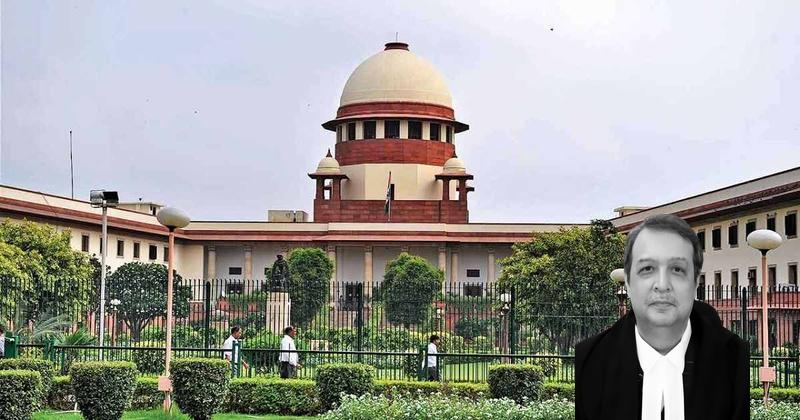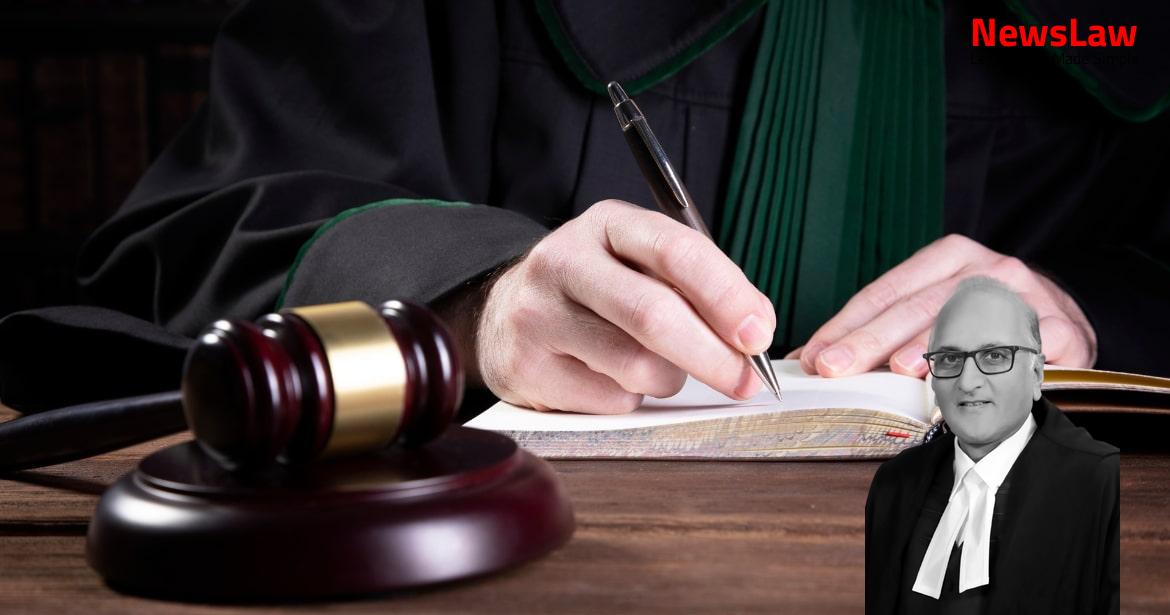The Central Government issued a notification dated 23.01.2015 in exercise of power under Section 3A(1) of the Act 1956 proposing to acquire few parcels of land situated in the District Mau for the purpose of four lane widening of the National Highway No 29.
The relevant portion of the award passed by the competent authority reads thus:- “By assuming the rate of Rs.4,50,00,000.00 as the stamp rate determined for the transferable land as basis, compensation of the land measuring 3.269 hec. Thus, total compensation amount comes out to Rs.63,16,90,117.00 (Rupees sixty three crores sixteen lakhs ninety thousand one hundred and seventeen only), I regard to which I declare the Award. 160 and 161 respectively, while the appellants herein claimed 5/8 share in the compensation in Gat No 158 and 13/16 share in Gat Nos. 46 of Copy of Khatauni for the crop year 1348, Ahirani Buzurg, in which Gata No 232 acres is recorded and name of Mahadev, son of Sitaram Shahi and Bholanath, son of Ganga and Saryu, son of Brijmohan, Caste Kanu is recorded in respect of Gata No 128 for the crop year 1348.
232 min./ 0.551, 232/ 0.183, 232/ 0.539 and 233/ 1.624 have been determined, which road is situated on both sides of Hashiya Doharighat to Gazipur, in which Applicant has got 1/3 share in Gata Nos.
Form-41 and 45 and Form-11, previous Khatauni and order dated 31.05.1976 passed by the Hon’ble Court of Additional Civil Judge, Azamgarh have been perused. The Hon’ble Civil Court has categorically spoken on the issue of share in the suit while framing issue No.1 “Whether the Plaintiff is co- owner and in the possession over the trees of list Ka to the extent of the 1/4 and list Kha 1/8 and 1/12 of the list Ga as alleged in the plaint?” While deciding the above mentioned issue as well as others, Hon’ble Court of Additional Civil Judge, Azamgarh has clearly mentioned in its order “In view of the above pedigree and the documents, the share of Ganga, father of Bhola and Sukdeo was 1/4 in the grove of plot No 208 (new number 158).
Even earlier also, report was sought from Tehsil Ghosi in the present case in regard to objection on the determination of the share, on which while granting sufficient opportunity of hearing to both the parties, same was furnished by Tehsildar Ghosi while determining the share.
Applicant Suresh Gupta or any member of his family has neither raised any objection in this regard before the Court nor has produced any evidence of initiating any proceedings in the Court, therefore, he is barred by Section 49 of the Consolidation of Holding Act. The respondents, being dissatisfied with the order dated 11.12.2019 passed by the SLAO referred to above, challenged the same by filing a petition before the District Magistrate, Mau invoking Section 3G(5) of the Act 1956.
Also Read: https://newslaw.in/?p=548
The said writ application came to be rejected by a Division Bench of the High Court vide its order dated 28.02.2020. Writ petition is directed against order dated 16.01.2020 passed by District Magistrate, Mau in purported exercise of power under Section 3(G)(5) of National Highway Act, 1956 (hereinafter referred to as “Act, 1956”) whereby he has set aside order passed by Special Land Acquisition Officer, Mau passed on 11.12.2019 and remanded the matter for redetermination. He submitted that the order which came to be passed by the competent authority dated 11.12.2019 could be said to be under Section 3H(3) of the Act 1956.
In the last, the learned counsel submitted that even otherwise the impugned order passed by the District Magistrate, Mau, could be said to be without jurisdiction as no notice or any opportunity of hearing was given to the appellants. Shukla, the learned senior counsel appearing for the District Magistrate, Mau (respondent No 1) and Competent Authority/Special Land Acquisition Officer, Mau (respondent No 2), very fairly submitted that the High Court committed an error in rejecting the writ application filed by the appellants herein. Having heard the learned counsel appearing for the parties and having gone through the materials on record, the only question that falls for our consideration is whether the High Court committed any error in passing the impugned order. (1) Where the Central Government is satisfied that for a public purpose any land is required for the building, maintenance, management or operation of a national highway or part thereof, it may, by notification in the Official Gazette, declare its intention to acquire such land. (2) Where the right of user or any right in the nature of an easement on, any land is acquired under this Act, there shall be paid an amount to the owner and any other person whose right of enjoyment in that land has been affected in any manner whatsoever by reason of such acquisition an amount calculated at ten per cent, of the amount determined under sub-section (1), for that land.
(5) If the amount determined by the competent authority under sub-section (1) or sub-section (2) is not acceptable to either of the parties, the amount shall, on an application by either of the parties, be determined by the arbitrator to be appointed by the Central Government. Section 3H is with respect to deposit and payment of amount. Sub-clause (5) of Section 3G makes it abundantly clear that if the amount determined by the competent authority under sub-section (1) or sub-section (2) of Section 3G is not acceptable to either of the parties, the amount will have to be determined by the arbitrator who may be appointed by the Central Government on the strength of an application by either of the parties.
Sub-clause (4) of Section 3H talks about apportionment of the amount. If the provision is unambiguous and from the provision the legislative intent is clear, the Court need not call into aid the other rules of construction of statute. The legislature has thought fit to confer powers upon the Principal Civil Court of original jurisdiction to determine the dispute arising as to the apportionment of the amount. The compensation awarded for compulsory acquisition is the value of all the interests which are extinguished and that compensation has to be distributed equitably amongst persons having interest therein and the Court must proceed to apportion the compensation so that the aggregate value of all interests is equal to the amount of compensation awarded.
In ascertainment of those interests, the determination of their relative importance and the manner in which they can be said to have contributed to the total value fixed are questions to be decided in the light of the circumstances of each case and the relevant provisions of law governing the rights of the parties. Thus, if the private respondents want to rely upon the order passed by the Civil Court, they can do so before the Court of the Principal Judge of original jurisdiction.
Also Read: https://newslaw.in/?p=554
We fail to understand on what basis the High Court in its impugned order has observed that the District Magistrate is competent to examine the order passed by the Special Land Acquisition Officer and decide the dispute as to the apportionment of the amount. The two provisions contemplating power of the Collector to make reference as contained in Section 18 and Section 30 of the Act need a comparative study. Though the expression employed in Section 18 is ‘the amount of compensation’ while the expression employed in Section 30 is ‘the amount of compensation or any part thereof’, this distinction in legislative drafting is immaterial and insignificant and a dispute as to entitlement or apportionment of part of the compensation would also be covered by Section 18 of the Act on the principle that the whole includes a part too. But a person who has not appeared in the acquisition proceedings before the Collector may, if he is not served with notice of filing, raise a dispute as to apportionment or as to the persons to whom it is payable and apply to the Court for a reference under Section 30, for determination of his right to compensation which may have existed before the award, or which may have devolved upon him since the award. (iv) The liability of the Government u/s 31 to pay compensation to the person entitled thereto under the award does not imply that only the persons to whom compensation is directed to be paid under the award may raise a dispute u/s 30.
The State had no right to the compensation payable for the land under a title existing before the date of the award of the Collector and no application could be made by it as a person interested within the meaning of Section 18. There is nothing in Section 30 which excludes a reference to the Court of a dispute raised by a person on whom the title of the owner of the land has since the award, devolved. Finality to the award spoken of by Section 12(1) of the Act is between the Collector on one hand and the ‘persons interested’ on the other hand and attaches to the issues relating to (i) the true area, i.e. The State claiming on the basis of a pre-existing right would not be a ‘person interested’, as already pointed out hereinabove and on account of its right being pre- existing, the State, in such a case, would not be entitled to invoke either Section 18 or Section 30 seeking determination of its alleged pre-existing right.
Case Title: VINOD KUMAR Vs. DISTRICT MAGISTRATE MAU (2023INSC606)
Case Number: C.A. No.-005107-005107 / 2022



